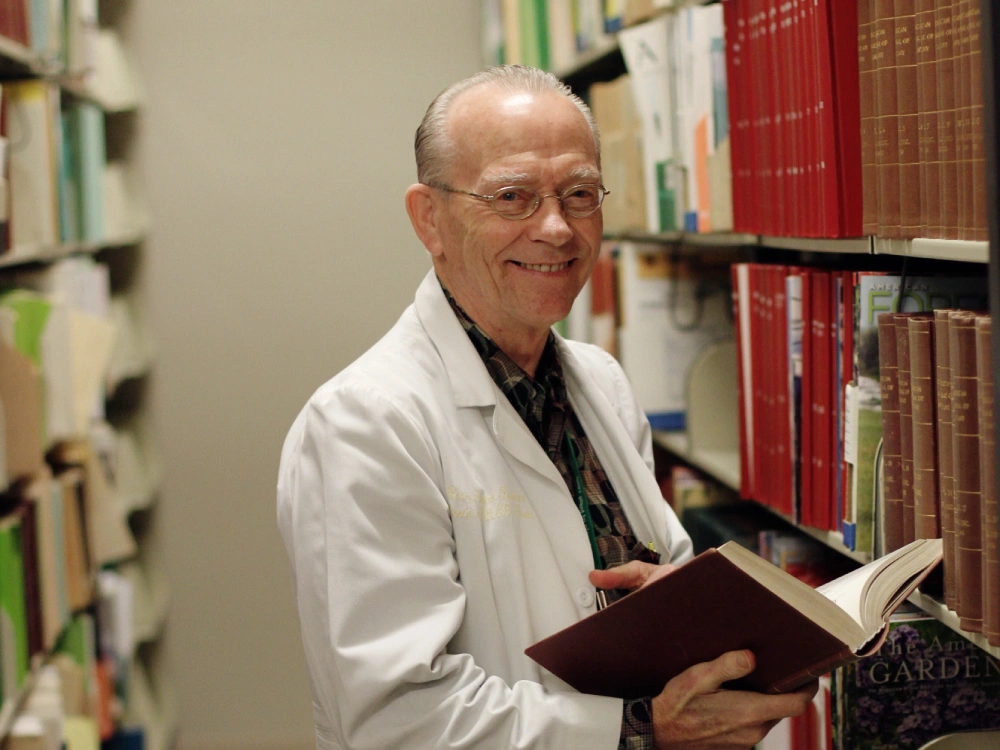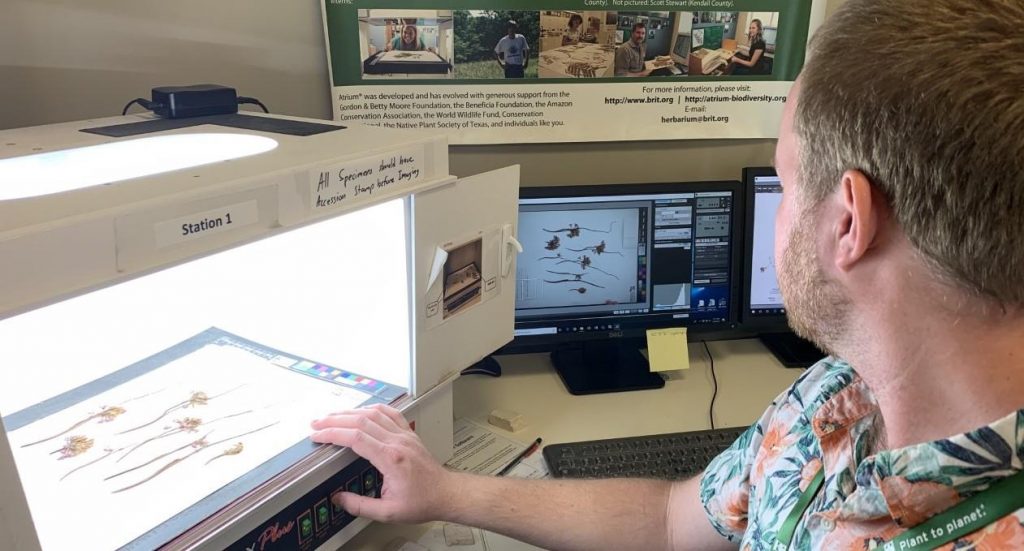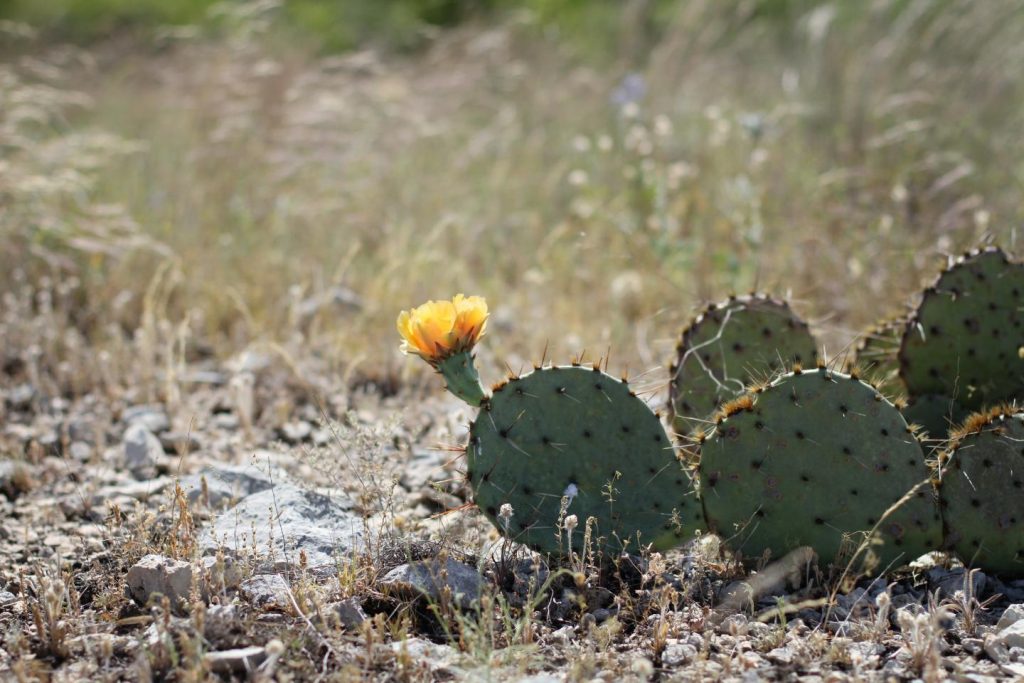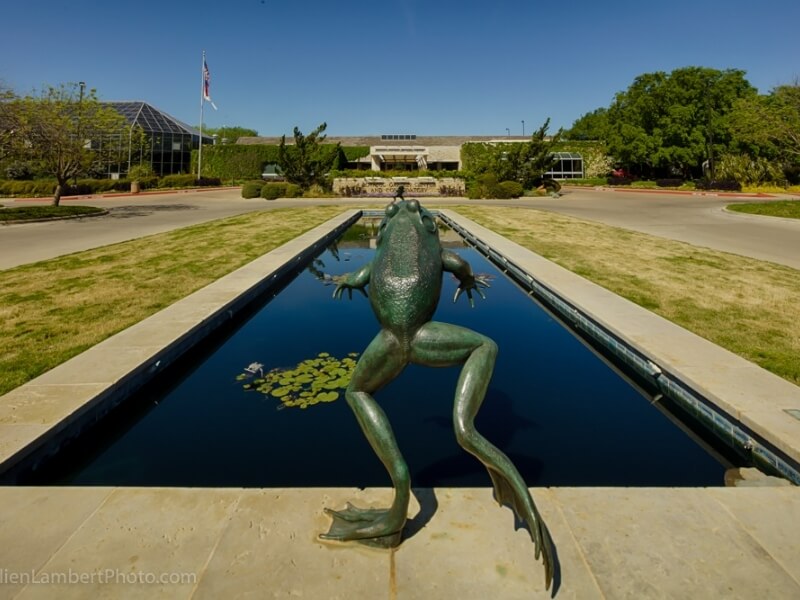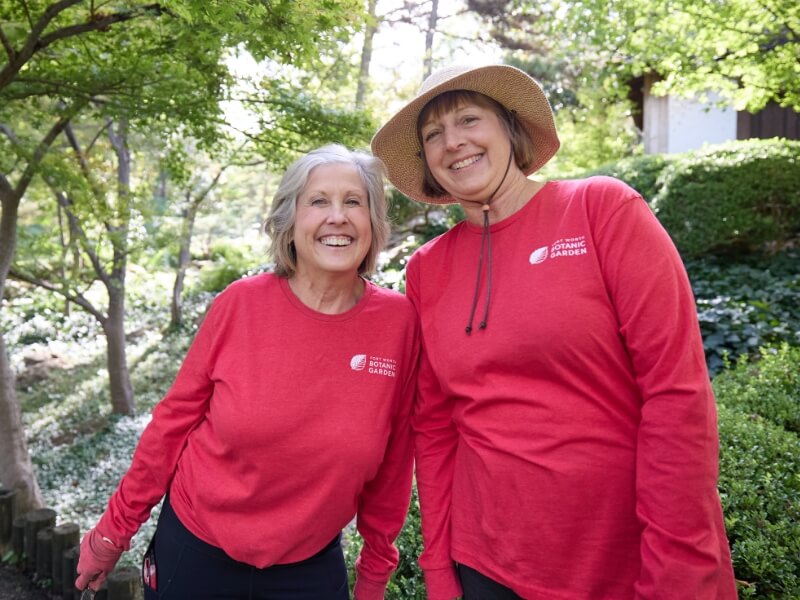Celebrating Barney Lipscomb’s 50 Years in Botany
To Fort Worth schoolchildren, he is “Barney the Botanist.” To garden clubs and horticulturists, he’s a fascinating speaker. To law enforcement, he’s a critical resource for the forensic interpretation of botanical evidence. To scientists, he’s a respected authority on the plants of Texas and a dedicated editor of both books and journals.
Any one of these identities would make Barney Lipscomb remarkable. But one additional identity makes Lipscomb a beloved figure at BRIT and the Fort Worth Botanic Garden. Over the years, Lipscomb has held a number of formal job titles, ranging from Librarian to Assistant Director. Even more important have been his informal jobs as fundraiser, real estate analyst, construction supervisor, master networker, and chief cheerleader.
On Aug. 20, Lipscomb celebrates fifty years in a career devoted to botany and BRIT, and neither would be the same without him. “It’s safe to say that without Barney, there would be no BRIT,” said Garden President and CEO Patrick Newman. “His role in establishing BRIT as an international hub of botanical research cannot be understated.”
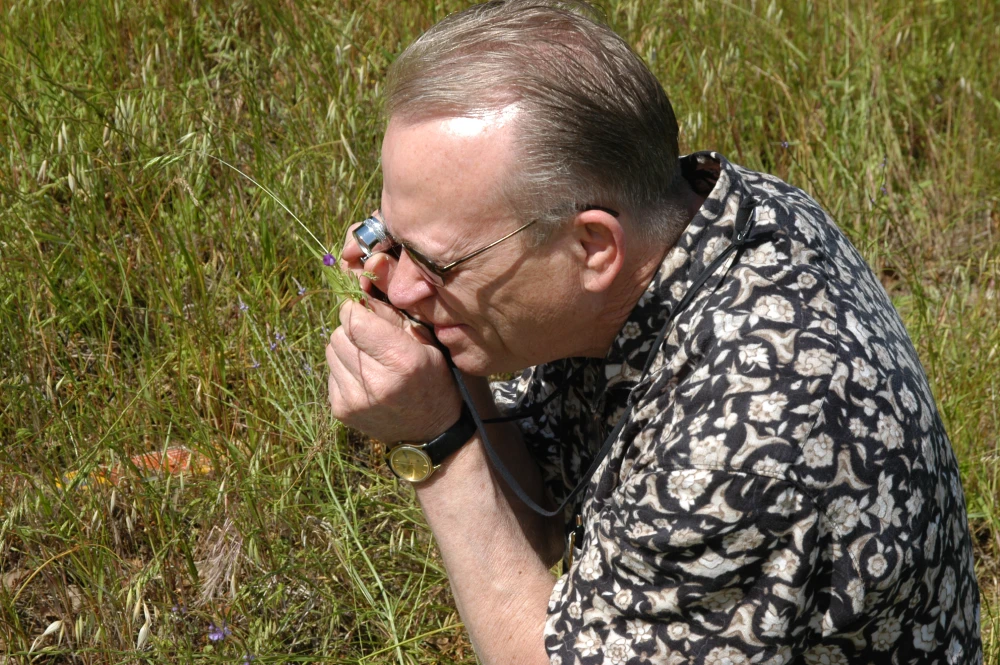
Lipscomb was born in Temple, Oklahoma, and his earliest introduction to botany was on his family’s cotton farm. “When you’re out there chopping cotton—hoeing weeds in the cotton fields—you’ve got to understand plants,” said Lipscomb. “My dad was my first botany teacher.”
Lipscomb graduated from Cameron University in Lawton, Okla., in 1973 with a degree in biology and from the University of Arkansas in 1976 with a master’s in botany. His graduate school studies school led him on a research trip to the SMU Herbarium. There he met SMU professor and herbarium director William H. Mahler, who later hired Lipscomb to serve as Herbarium Botanist and Librarian in 1975.
Mahler and Lipscomb worked with a small team managing the 380,000 specimens in the herbarium and 35,000 volumes in the library. However, during an economic crisis in 1984, SMU’s support for the herbarium waned. Lipscomb survived two rounds of layoffs and began working with Mahler to find the collection a new home. “It was definitely touch and go for a while there,” said Lipscomb.
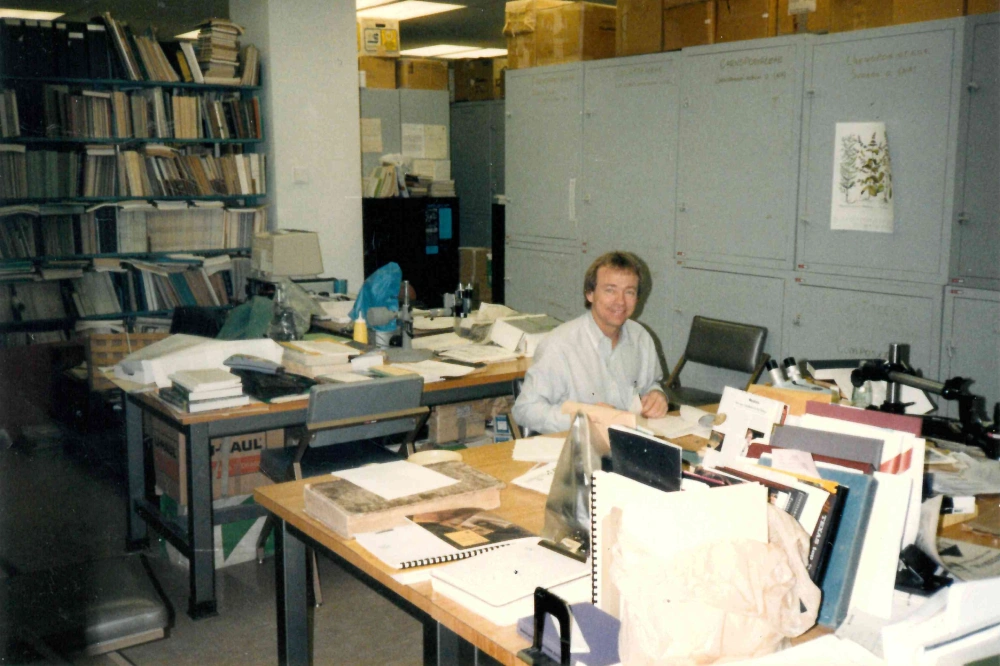
A chance meeting with Fort Worth businessman Ted McAlister opened doors to corporate and civic leaders in Fort Worth and allowed the team to raise the funds to incorporate the Botanical Research Institute of Texas as a non-profit organization on Oct. 2, 1987.
“That’s a day I shall never forget,” said Lipscomb. “Bill Mahler and I were driving, and Bill said to me, ‘Barney, I think we’ve done it.’”
However, challenges remained. The next few years, Lipscomb divided his time between his work as botanist with the no-less essential tasks of networking, fundraising, and scouring Fort Worth for an appropriate location to house the collection. Finances were so tight that the fledgling organization missed one payroll.
But then a meeting set up by McAlister with Fort Worth businessman Edward P. Bass changed the BRIT’s future—and Lipscomb’s. In 1989, Bass, a committed environmentalist, agreed to serve on the Board of Trustees, and with his support, BRIT was placed on a secure financial footing.
Not long after, the institute found a home in Downtown Fort Worth. Lipscomb added construction manager to his list of duties to help prepare the space to house the herbarium and library, and BRIT’s first Fort Worth location opened in June 1991.
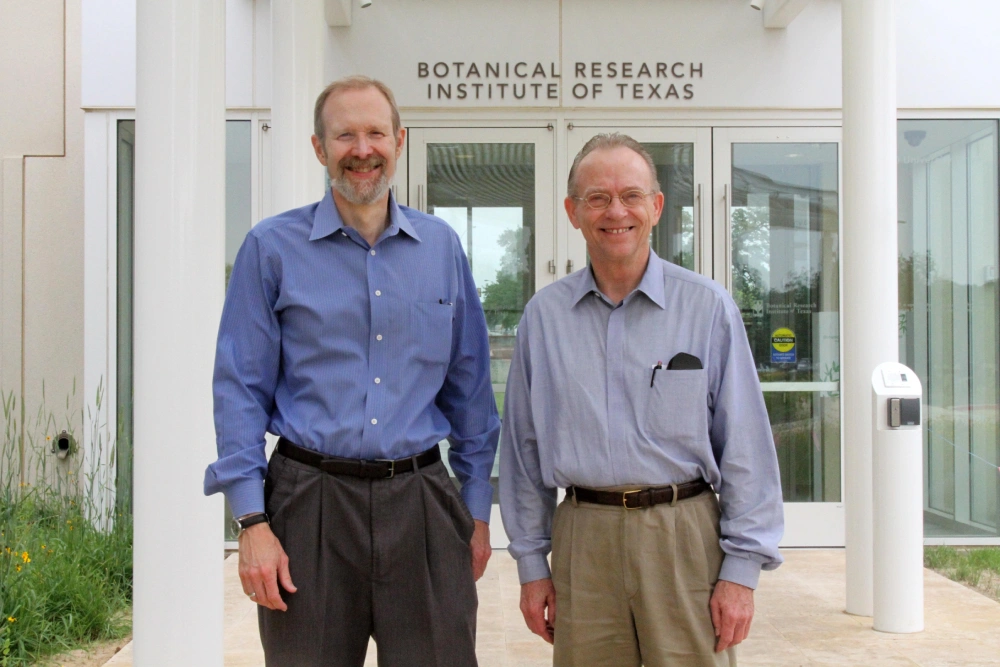
Lipscomb was happy to again concentrate on his work as a botanist and editor, but he doesn’t regret the time spent getting BRIT off the ground. “You can’t have botany if you don’t have a place to do it,” Lipscomb said.
Lipscomb continued to play an important role over the years as the institute built its permanent headquarters and took over management of the Fort Worth Botanic Garden. His work could be divided into three broad categories. One was education. Lipscomb has given more than 1,200 talks on topics from “The Art of Floral Illustration” to “Discovering Texas’ Botanical Heritage.” He has also spoken to thousands of third graders in his role as “Barney the Botanist,” sharing information about plants and the job of a botanist.
A second category is forensic botany. Lipscomb has been involved in numerous criminal cases. “Sometimes the police come to us with botanic evidence from clothing or a crime scene—maybe pollen or plant materials,” Lipscomb said. “It’s always incredibly rewarding to be able to help on these cases.”
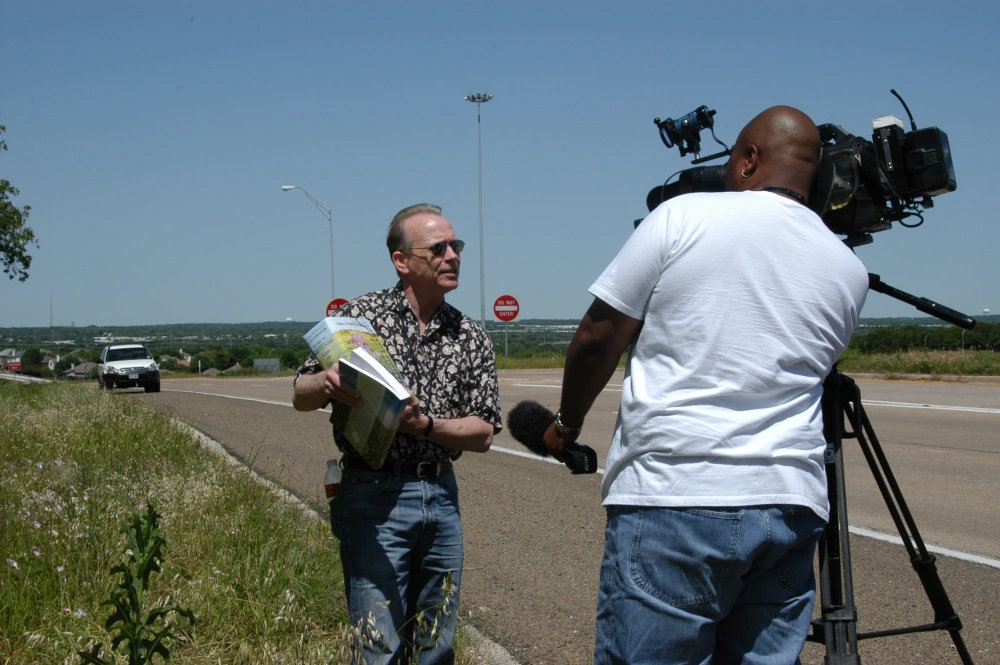
The final category is publishing. As Director of BRIT Press, Lipscomb has edited and published 72 books and 98 issues of two publications, the Journal of the Botanical Research Institute of Texas and Sida, Contributions to Botany. “The manuscript submissions don’t seem to slow down,” Lipscomb said. “I would like to attribute that to the fact that the journal and press are doing a good job.”
Lipscomb recently hired his successor as editor of the Press and will spend the next year or so in training and mentoring. But handing over the position doesn’t mean Lipscomb intends to slow down. He continues to work on producing floras for Texas—that is, illustrated guides to all of the plants of a region; the Illustrated Flora of North Central Texas was published in 1999; volume one was published in 2006 and volume two of the Illustrated Flora of East Texas is slated for publication at the end of 2025. Lipscomb also continues to promote BRIT and the Garden.
“We do so many things now—we’re a botanic garden, and we offer all sorts of classes. We host a world-class herbarium, we send scientists around the world, we publish books and journals, and we conduct molecular research into plant genetics,” Lipscomb. “So BRIT and the Garden are many things for many people.”
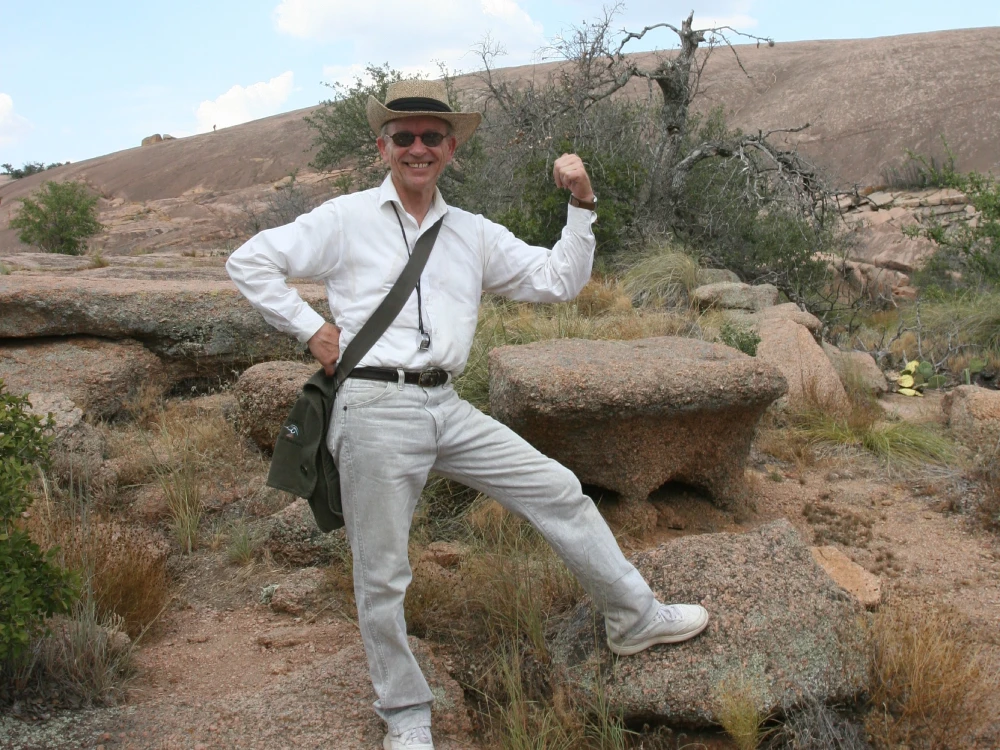
Nevertheless, “We want to be one thing to all people, and that’s a catalyst for change,” Lipscomb said. “What I mean by that is, after people visit us, we hope they’ll be inspired to plant a few native plants in their garden. They might conserve water more. Or they could become better recyclers. We can bring about change in one form or another.”
The Fort Worth Botanic Garden and BRIT congratulate Barney Lipscomb for fifty years of science, science education, and publishing—and a lifetime of understanding and sharing the wonder of plants.
